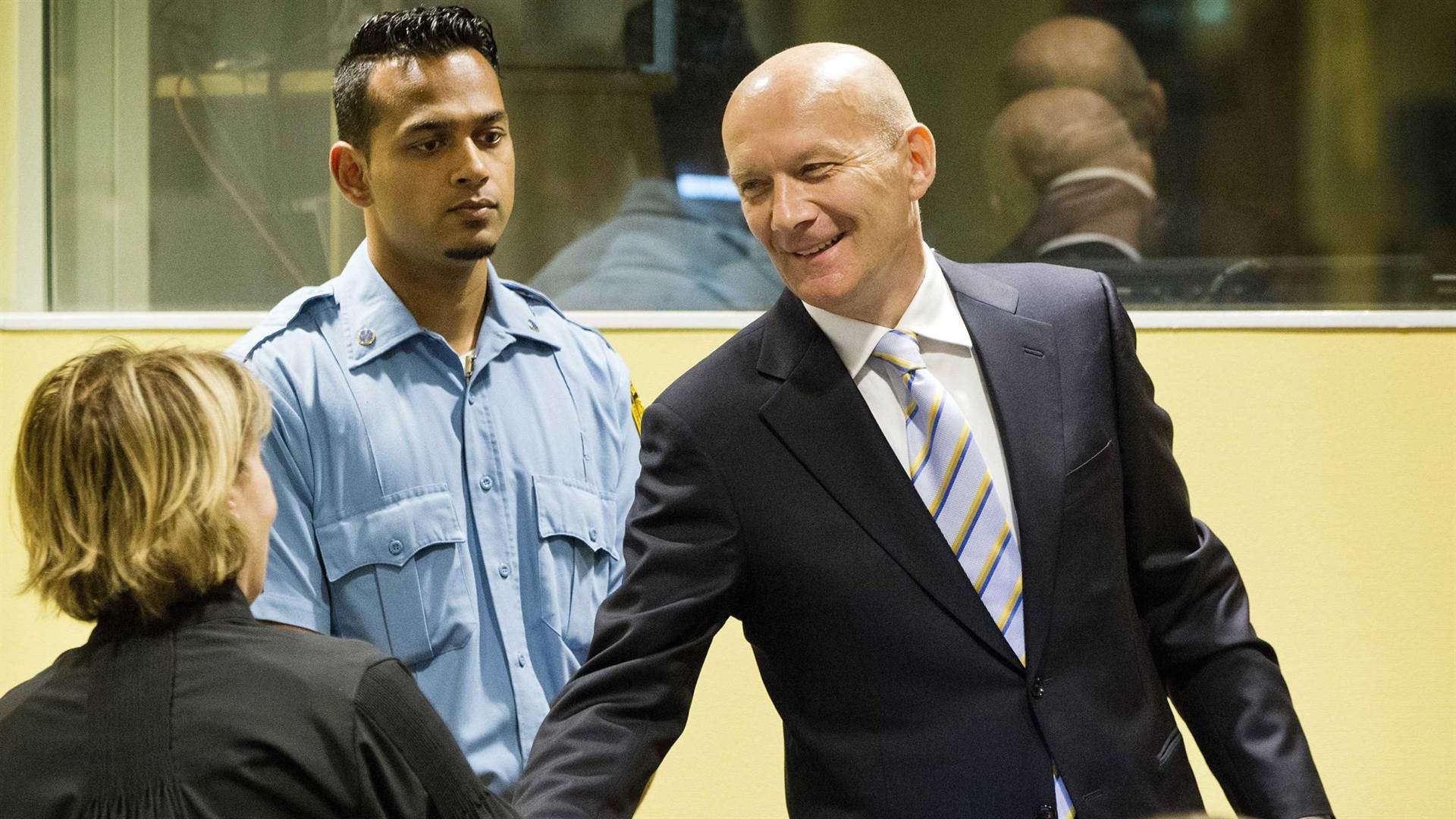This post is also available in: Bosnian
The International Residual Mechanism for Criminal Tribunals has rejected a request for the early release of Jadranko Prlic, the former political leader of the Croatian Republic of Herzeg-Bosnia, a wartime unrecognised Bosnian Croat statelet.
“While Prlic is eligible to be considered for early release, the high gravity of his crimes and his insufficient demonstration of rehabilitation are significant factors militating against such release,” judge Graciela Gatti Santana stated in her decision, which was delivered on March 7.
“Further, there is no evidence before me that establishes the existence of compelling humanitarian grounds which would warrant overriding this negative assessment,” she added.
In November 2017, the Hague Tribunal’s appeals chamber sentenced Prlic to 25 years in prison along with five other senior officials of the unrecognised Croatian Republic of Herzeg-Bosnia.
Prlic, Slobodan Praljak, Bruno Stojic, Milivoj Petkovic, Valentin Coric and Berislav Pusic were all found guilty of crimes against humanity and other crimes against Bosniaks while they were senior political and military officials of the Herzeg-Bosnia statelet.
As the judgment was being read out, Praljak drank poison in the courtroom and died later that day.
In 2021, the International Residual Mechanism for Criminal Tribunals rejected Prlic’s previous request for early release because, among other reasons, he had not served two-thirds of his prison sentence at the time.
In the latest judgment, Gatti Santana said that Prlic has made a statement to the court accepting his role in the crimes of which he was convicted, and expressing remorse and condolences to the Bosniak victims and their families.
“I am aware that my statements will probably encounter misunderstanding and rejection, even among the members of the nation to which I belong. I am also aware that many will question and doubt my motives,” Prlic said in his statement, according to Gatti Santana.
“However, it is not hard for me to accept this burden because I must and want to do this. Out of piety and compassion for the victims. For Bosnia and Herzegovina and its future. Finally, I do this for myself and my conscience, so I could as a human being, despite all, continue to live,” he added.
But Gatti Santana said that Prlic’s general acceptance of responsibility for his crimes does not sufficiently demonstrate critical reflection or genuine remorse, and that his expressions of remorse have not yet been substantiated by tangible evidence of rehabilitation.
The judge acknowledged that Prlic’s behaviour in prison was “very good and, as such, merits commendation”.
However, she cautioned that “such good behaviour cannot on its own demonstrate rehabilitation of a person convicted for some of the most heinous international crime”.
In making the decision, Gatti Santana said the opinions of war victims’ associations and survivors who opposed Prlic’s early release were also taken into account.
She said the authorities in the United Kingdom, where Prlic is serving his sentence, are being informed that he will complete his prison term in August 2032.



